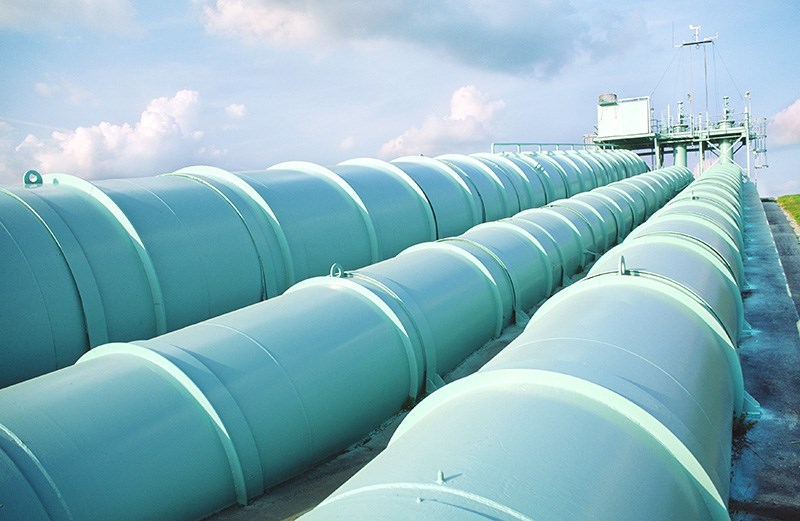Pam Wright
Getting behind the $15.8-billion Energy East pipeline is a good idea for Sarnia, says Jason McMichael, president of the Sarnia and District Labour Council.
“Sarnia was built by the oil industry. We all know somebody here who works in the petrochemical industry.

“It touches everyone,” he said.
McMichael spoke at a Safe Pipelines Symposium in Sarnia on June 28, which kicked off a national tour to showcase pipeline safety and the benefits Energy East would bring the Canadian economy.
Hosted by Labourers’ International Union of North America, Local 1089, it drew top gun industry and union representatives.
McMichael, the government and community relations spokesperson for Local 1089, said a highly skilled workforce ensures high construction standard.
“We’re very confident we can build the safest possible manner of transporting fossil fuel,” he said.
The Energy East pipeline would run through six provinces and arc across northern Ontario. Though far from Sarnia, job possibilities exist for the city’s skilled workers, McMichael said.
Gary Houston, vice-president of Stakeholder Engagement for Energy East, acknowledged he was “preaching to the choir” at the symposium.
He said many Canadians aren’t familiar with the oil industry’s extensive safety measures and it’s up to those in the know to carry the message.
“Talk to your neighbours,” he told the crowd. “There are no silent supporters.”
The 4,800-kilometre TransCanada pipeline would bring 1.1 million barrels of oil per day from land-locked Western Canada to New Brunswick, eliminating the need to import foreign oil for refineries in Eastern Canada.
“We’re doing things in Canada we ought not to be doing,” he said, adding Energy East would lead to the country’s “energy independence.”
According to Houston, $1 billion a year is spent to monitor, maintain and repair existing pipelines. Operators can shut down a line with “three clicks of a mouse in 10 minutes,” he said. “We are ready to respond.”
Controversy over pipeline safety and the impact of oil extraction on climate change, as well as spills, has dogged the topic of new pipeline construction and deeply divided Canadian opinion.
Howie Brox, a national representative for LiUNA, told the audience that “mainstream media is to blame” for the negativity surrounding pipelines.
Positive stories and social media engagement can help “change the conversation” and cast pipelines in a positive light, he said.
Mayor Mike Bradley, who gave the official welcome at symposium, also voiced his support for the national project.
